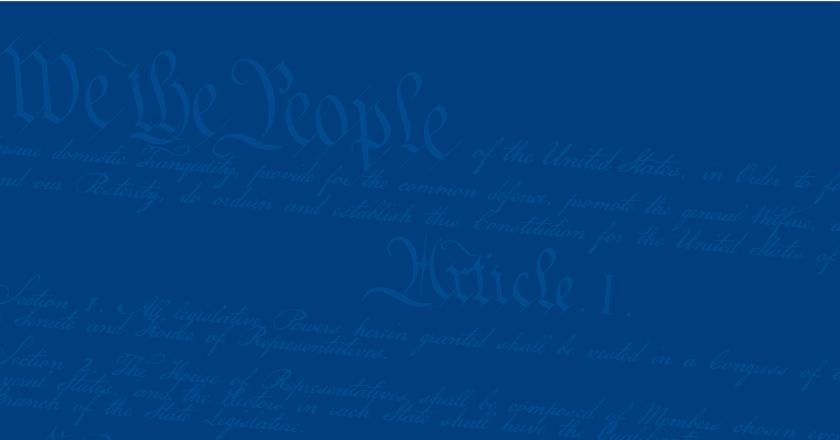The opening words of the preamble to the Constitution, “We the people,” majestically echo the message of the Declaration of Independence. The preamble is a statement of the hopes of the American revolutionaries as well as their obligations. The Constitution was meant to make possible a political society rooted in the rights and freedoms proclaimed in the Declaration. In other words, the Constitution marked not the end of the American Revolution, but rather its fulfillment.
The Framers were determined to lay the foundation of the United States on certain principles and to organize its power in a particular way—so that both freedom and order could be preserved.
Understanding the Constitution therefore requires examining each of these principles, and it is essential that we do so because, as President James Madison stated in his 1810 State of the Union message to Congress, “a well-informed people alone can be permanently a free people.”1 President Andrew Jackson made the same point in his 1837 farewell address: “But you must remember, my fellow-citizens, that eternal vigilance by the people is the price of liberty, and you must pay the price if you wish to secure the blessing.”2
This booklet is designed to help all Americans appreciate and defend the meaning and purpose of the Constitution so that they may preserve freedom for themselves and for succeeding generations.
ENDNOTES:
1. James Madison, “December 5, 1810: Second Annual Message,” University of Virginia, Miller Center, https://millercenter.org/the-presidency/presidential-speeches/december-5-1810-second-annual-message (accessed May 20, 2021).
2. Andrew Jackson, “Farewell Address, Mar. 4, 1837,” in The Addresses and Messages of the Presidents of the United States, ed. Edwin Williams (New York: Edward Walker, 1846), p. 957.
